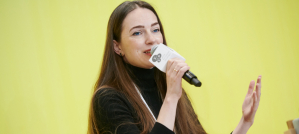Yalta European Strategy (YES) Held Online Conversation with Egils Levits, Fareed Zakaria and Aleksander Kwaśniewski on the Future of Democracy
Yalta European Strategy, in partnership with the Victor Pinchuk Foundation, continues its series of online conversations on global challenges and what they mean for Ukraine. On November 10, Egils Levits, President of Latvia, and moderator Fareed Zakaria, host, Fareed Zakaria GPS, CNN, discussed the current state and the future of democracy. Aleksander Kwaśniewski, President of Poland (1995-2005), Chairman of the Board of YES, opened the conversation.
Egils Levits said: “Democracy is not a simple rule of majority. Modern constitutional democracy means rule of majority, plus rule of law, which means restrictions on the rule of majority according to certain principles. Simple rule of majority is not enough to achieve a modern state, capable of coping with the problems of the modern times. The quality of decisions in liberal democracies is much better than in illiberal democracies.”
President Levits continued: “Dictatorships are fragile. Democracies are very robust. (...) Liberal democracy works. Authoritarian regimes are not stable for a long time. The advantage of democracy is that it is not linked and does not depend on one person. You can change presidents, prime ministers, politicians, and democracy goes on. (...) Illiberal democracies and autocratic regimes are fragile in principle.”
On Ukraine’s key challenges, the Latvian president pointed out: “First, concerning the pressure by Russia, Ukraine should stay strong, and I think, since the start of the events in Crimea and the Donbas, all the governments have remained committed to these principles, rejecting all the Russian claims. The second, and maybe more difficult task, is to build a system of rule of law. Ukraine is a democracy, and the recent and previous elections have been free and fair. But this is not enough. And to build strong institutions, you need competence and competent decisions. (...) Building institutions is not possible by adopting laws in one week. It is a long process where institutions become strong. I think, this phase is exactly the one Ukraine is in now. The institutions are gradually becoming stronger. So, my advice would be not to leave this way to build institutions. Institutions are one of the absolute preconditions, sine qua non, for modern liberal democracy. I see that president Zelenskyy is willing to strengthen the institutions, to build, and I would advise to pursue that policy.”
Asked if the EU will keep up its sanctions imposed on Russia after Russia’s annexation of Crimea and involvement in Eastern Ukraine, Egils Levits stressed: “We cannot sell our principles for sets of economic benefits, and if you are willing to do it, then you are not real democrats (...). Democrats need certain strong principles, and they should follow those. And one of the principles is that you cannot recognise infringement of the international law by another country. It is unbelievable that in the 21st century, in Europe, there is an annexation of another country’s part. I think, we should send a strong signal: you should not do so. Democracy is also a kind of ethical idea, and if you are democrat, you should stick to this ethical idea that law and rules should be respected.”
Since 2004, Yalta European Strategy has been the main non-governmental platform for connecting the world and Ukraine. The YES Annual Meetings have brought together world political, business and thought leaders to discuss Ukraine’s future and pressing global challenges.
Video of the event is available at link.
←Back to news list

